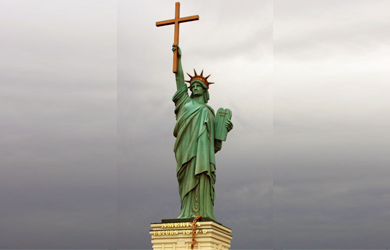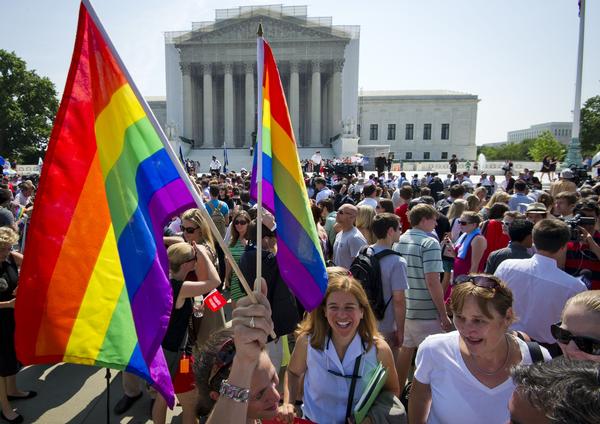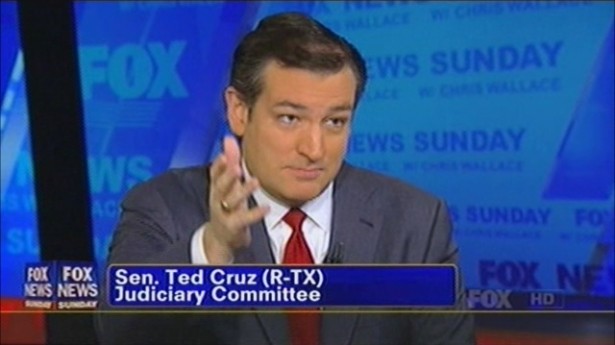On the web site of the American Center for Law and Justice, the Pat Robertson-founded legal group where Jay Sekulow serves as chief counsel, Sekulow describes himself as a “nationally recognized and respected defender of religious freedom.” On last night’s “Hannity & Colmes” on Fox News, Sekulow perhaps elaborated on what he means by “religious freedom” when he said that a freshman Muslim lawmaker “should have just abstained from” using the Koran in a ceremonial photo op following his official swearing in as a member of Congress. Sekulow, although aware of the constitutional prohibition of religious tests for office, insisted that such a use of the Koran represented a “danger” to the country and its “Judeo-Christian tradition.”
Rep. Keith Ellison (D-Minnesota) has been a target of some on the Right since an article by radio talker Dennis Prager wrote that he “should not be allowed” to be photographed with the Koran, calling the use of the Bible “essential to the continuity of a civilization.” Rep. Virgil Goode (R-Virginia) pushed the “controversy” into the headlines when he wrote a letter to his constituents warning that, “if American citizens don’t wake up and adopt the Virgil Goode position on immigration there will likely be many more Muslims elected to office and demanding the use of the Koran.” Goode later invoked the terrorists attacks of September 11 as justification for his concerns about immigrants.
Apart from Goode’s tirade against immigrants, Sekulow is the most prominent figure to embrace this attack on religious liberty. Sekulow has made a name for himself as a right-wing superlawyer, defending violent anti-abortion activists before the Supreme Court and advising the president on judicial nominees, all while pulling down an impressive salary.
While Sekulow was clearly aware of the ban on religious tests – he told Sean Hannity that Ellison didn’t have to actually hold the Bible – he insisted that Ellison’s use of the Koran (the copy once owned by Thomas Jefferson, architect of religious liberty) represented a “danger” to the country.
Get the Flash
Player to see this video clip.
Jay Sekulow on Hannity and Colmes, 1/8/07
You know, this country is founded on a principle that — and the courts have talked about this, Sean — called ceremonial deism. This is as common understanding of the civic religion of America.
And part of that is within the Judeo — it really is within the Judeo- Christian tradition. And what I think the congressman should have done in this particular situation — if he was objecting to taking an oath on the Bible, we don’t have a religious oath requirement in the United States. And I think that’s in the Constitution. That’s clear.
He should have just abstained from using a book at all, because once you go down this road, the danger is, once you get outside of our ceremonial deism, our commonality, what you end up with is anything goes at that point.
And you’ve had this discussion on previous aspects of the program, where, does someone that finds a particular book that many of us might find offensive to be something they’re influenced by, do they get to use that as the oath of office for the swearing in? And I think the answer has to be no.
That’s why we start the Supreme Court of the United States with “God save the United States and this honorable court.” It doesn’t mean everybody agrees with that. It doesn’t mean everybody believes in it. But that’s the commonality of a religious heritage, of a religious experience.
And let’s not start rewriting it. That’s the danger with what Congress — the congressman did here. I would have thought the better thing for him have to done was just not take an oath on a particular book, if he’s going to go outside of the American tradition.







